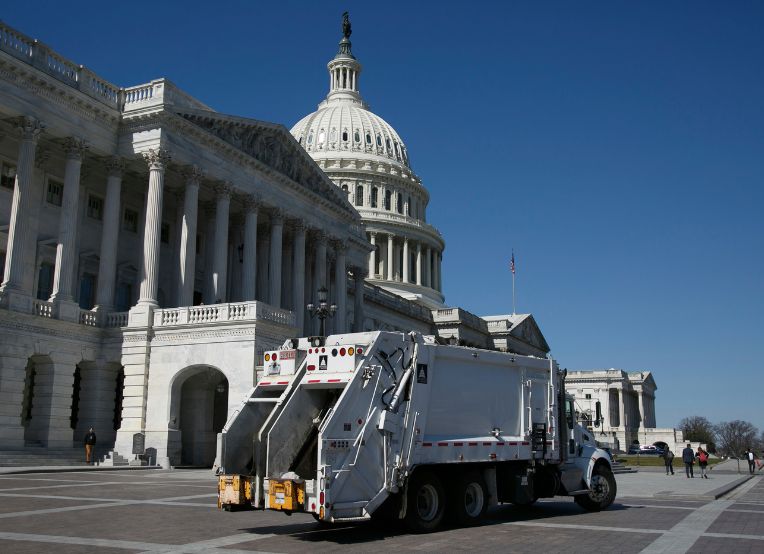
When the U.S. government flexes its $5 trillion annual purchasing power to encourage environmental progress, companies listen—and act. A new study from the UC Berkeley’s Haas School of Business shows that firms have reduced toxic emissions, developed greener products, and taken concrete steps to address climate change in their pursuit of government contracts.
The study, led by Haas professor Omri Even-Tov, analyzed ten years of data on about 2,700 companies headquartered across more than 350 U.S. counties. The companies seeking government contracts not only started talking more about climate disclosures, but they cut emissions by up to 10,000 pounds per year per county and were 5% more likely to develop green technology patents.
“Our research shows that when the government sets expectations as part of procurement, it’s not just greenwashing,” says Even-Tov, an associate professor of accounting and co-faculty director for the Center for Social Sector Leadership. “Companies are actually getting greener and it’s making a big change in the world.”
The paper, forthcoming in the Review of Accounting Studies and coauthored by Guoman She, Lynn Linghuan Wang, and Detian Yang of the University of Hong Kong, is among the first to empirically show how rules associated with government purchases of goods, supplies, equipment, services, and construction have nudged companies to take environmental action without requiring further regulations.
Shift toward greener policies
The shift began in the 1970s, when the government moved away from accepting the lowest bids and started considering sustainability in its purchasing decisions. It accelerated in 2009 when President Obama mandated federal agencies to ensure that 95% of all new contracts require environmentally friendly products and services. The new policy made it a priority for the government and suppliers to reduce their greenhouse gas emissions and encouraged state and local government officials to follow its lead.
Novel approach
Pinpointing how much government procurement policies have influenced companies’ actions is a challenge, and it required a novel approach. Since federal funding is tied to population, Even-Tov and his team looked at companies headquartered in counties that received higher-than-anticipated population counts in the 2010 census. These unexpected “census shocks” led to big boosts in government contracting opportunities.
The researchers focused on companies that do a lot of business with the government, and their dataset included 16,000 annual observations on 2,755 companies from 2008 to 2017. The team also interviewed local procurement officers and looked at data from the Toxic Release Inventory database, which collects emissions information for each facility.
The results show that the incentives for companies to secure procurement contracts, which often have sustainability mandates regarding products or manufacturing processes, led companies to:
- Reduce greenhouse gas emissions by up to 10,000 pounds annually per county.
- Increase the likelihood of developing green patents aimed at producing green products by 5%.
- Increase by 24% how much they talked about environmental disclosures on earnings calls, including “commitments to mitigate climate change,” “development of green products,” and “pursuit of environmental abatement.”
That last point is more significant than it sounds since research published in The Journal of Finance last year showed that an increase of one standard deviation in climate-related “bigrams”—two-word sequences related to climate change—during conference calls is associated with a 109% increase in green jobs and a 72% increase in green patents in the following year.
Policy implications
Lingering questions have remained about the efficacy of sustainability mandates in creating real change versus “greenwashing,” defined as companies making false or misleading statements about environmental benefits.
The research empirically shows government procurement sustainability requirements promote corporate climate responsibility by incentivizing companies to undertake climate mitigation in two concrete ways:
- Companies that increase climate disclosures are more likely to earn government contracts.
- These companies, in turn, reduce toxic emissions and encourage development of green products.
“Some people think the government can’t do anything and that basically it’s worthless,” Even-Tov says. “But our research really highlights the importance of the government’s role in fighting climate change—and that when the government does take actions it can lead to good outcomes.”
About the study
How government procurement shapes corporate climate disclosures, commitments, and actions
by Omri Even-Tov, Guoman She, Lynn Linghuan Wang, Detian Yang
Review of Accounting Studies, forthcoming